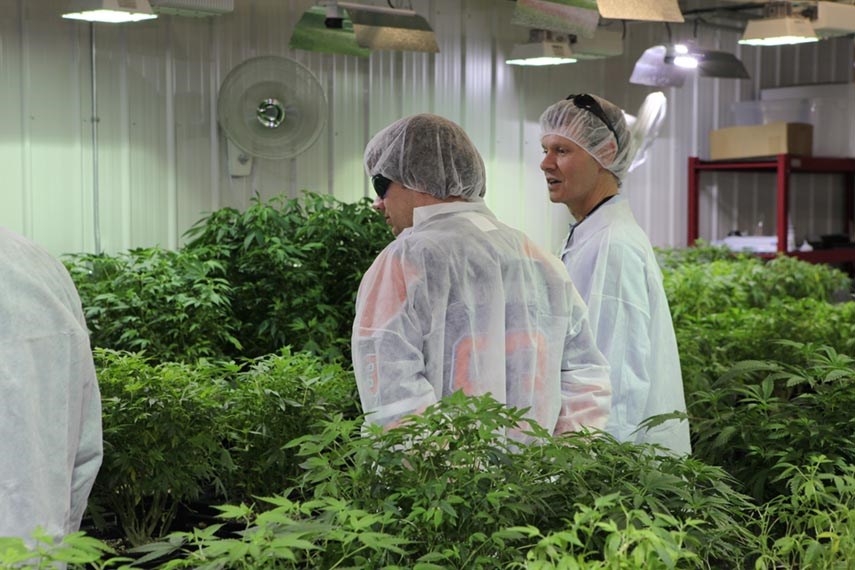Vancouver-based Aurora Cannabis Inc. is building a marijuana grow-op the size of nine football fields at Edmonton International Airport (EIA).
What is being hailed as the world’s biggest medical marijuana production facility is also throwing a lifeline to an Alberta industrial real estate market cratered by the crash in oil prices.
“This is a pivotal initiative for Leduc County, for Alberta, the Canadian cannabis sector and the global cannabis industry,” said Terry Booth, CEO of Aurora, which is headquartered in downtown Vancouver.
“We are very proud of Aurora Sky. This is not just because it’s the world’s most advanced cannabis facility, but it will become an important contributor to the local economy, both through investments and job creation.”
The 800,000-square-foot Aurora Sky production plant – capable of growing 100,000 kilograms (110 tons) of cannabis annually at full capacity – is being built on 30 acres leased from the Edmonton Regional Airports Authority in Leduc, which has seen a fifth of its industrial real estate space go dark since oil prices fell 60 per cent in 2014.
Booth said the location provides several advantages, including access to abundant and reliable low-cost power and water, proximity to infrastructure and essential services, such as courier services, international customs and air links for potential exports.
“Aurora’s new facility will benefit from high-quality services on site at EIA, including bonded warehousing, ground transportation access and air cargo connections across the country,” said Myron Keehn, vice-president of commercial development at EIA.
Aurora, a licensed producer of medical cannabis in Canada, already operates a 55,200-square-foot production plant in Mountain View County, Alberta’s only legal medical marijuana grow-op, said Aurora vice-president Cam Battley.
Battley said the new Leduc grow-op positions Aurora to take advantage of the future legalization of recreational marijuana while servicing demand from medical marijuana users.
About 130,000 Canadians have prescriptions for medical marijuana, but that demand is dwarfed by the potential in recreational use.
Prime Minister Justin Trudeau has promised to legalize and regulate recreational marijuana, perhaps as early as next spring.
Denver experience
Legalization could create a $10 billion industry in Canada, according to a CIBC World Markets study. As shown in Leduc, a big winner could be the industrial and commercial real estate sector, according to a CBRE survey of what happened in Colorado, which legalized pot in 2014.
Marijuana producers have accounted for 35.8 per cent of all the industrial space leased in Denver since 2009 and now hold close to four million square feet, CBRE reported in its 2015 study. The marijuana industry is credited with driving Denver’s industrial vacancy rate down from 6 per cent in 2009 to 0.3 per cent in 2015.
The study also found that cannabis tenants paid lease rates up to three times higher than average and bought industrial buildings for twice the going price.
“Buyers paid up to four times the market value for retrofitted warehouse space to avoid delays in harvesting,” the CBRE report noted.
Retail
Retail real estate could also boom if and when marijuana is legalized in Canada. There are already hundreds of medical marijuana storefront dealers across Canada, including at least 54 in Vancouver.
U.S. studies have shown that the average sales per square foot of a marijuana retail outlet is US$974, ranking it fourth overall nationally, just behind Costco but well ahead of pharmacies and department stores.
In Metro Vancouver, the retail sector would likely see the greatest lift with marijuana legalization, according to Curtis Scott, manager of market intelligence with Colliers International, Vancouver. Scott noted that the Metro industrial market has Canada’s lowest vacancy rate, and “landlords can be choosy on which tenants they lease to.”



